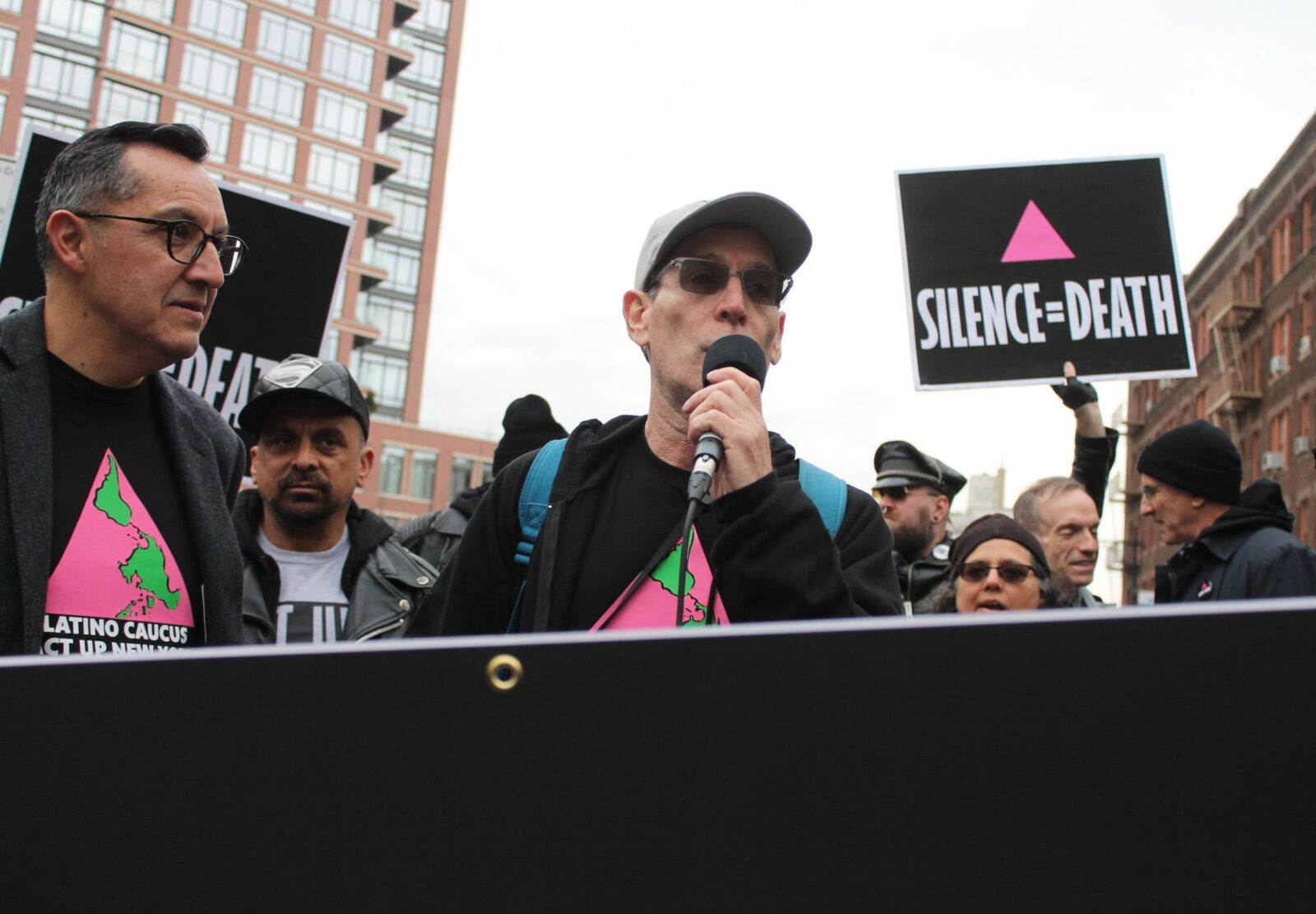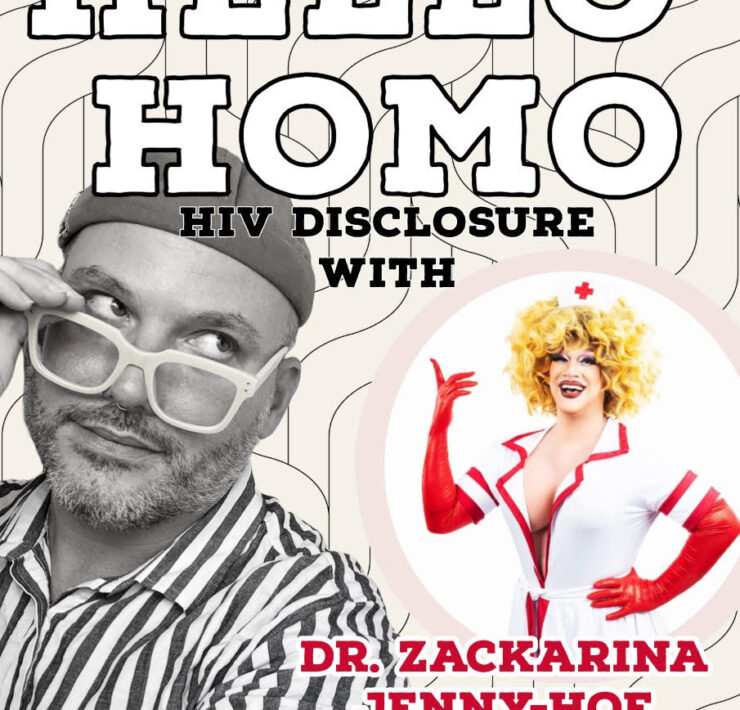ACT UP Acts Up

Back in the 80s, the work of David Wojnarowicz captured the turbulent ethos and rapid change of the era, and as the AIDS crisis unfolded, documented the pain of his community and fought back against the dominant culture’s abandonment of AIDS victims. He focused on those the world ignored.
“Wojnarowicz saw the outsider as his true subject,” the Whitney Museum website states. “His work deals directly with the timeless subjects of sex, spirituality, love, and loss.”
But, a new exhibit at The Whitney of the late Wojnarowicz’s art led to a protest from the AIDS protest organization ACT UP, who criticized the lack of context and the omission of Wojnarowicz’s AIDS activism.
David Wojnarowicz: History Keeps Me Awake at Night is a retrospective exhibit of the artist’s work spanning photography, painting, music, film, and writing. Wojnarowicz, a gay man, began his career in the 1970s and rose to prominence in the New York City art scene of the 80s.
Wojnarowicz died in 1992 of AIDS-related complications, but his work remains a strong cultural touchstone in the LGBTQ community. It is used to remember the urgency of the AIDS crisis. One self-portrait shows Wojnarowicz engulfed in flames; another, a photograph, shows him staring defiantly at the camera with his lips stitched together. His paintings are vivid explosions of color, scenes of both violence and desire leaping out from the canvases. Even in death, Wojnarowicz is all action.
But some of this action was absent from the exhibit. When members of New York City’s ACT UP chapter visited the museum, they were dismayed that Wojnarowicz’s AIDS activism was only briefly discussed, and his involvement in ACT UP was not mentioned.
ACT UP—AIDS Coalition to Unleash Power—is a direct-action group that was formed in 1987 to combat the AIDS crisis. They engaged (and continue to engage) in political protests, sit-ins, and public awareness campaigns that target the government, the pharmaceutical industry, and other figures hindering access to HIV/AIDS treatment. While many chapters are now dormant, the NYC chapter is still very active. Its members participated strongly in the 2017 protests to save the Affordable Care Act and have numerous events agitating for more access to HIV/AIDS treatment.
Wojnarowicz was a member of ACT UP and referenced the organization in a number of his works. His jacket, which was embroidered with the group’s pink triangle logo and the command, “IF I DIE OF AIDS—FORGET BURIAL—JUST DROP MY BODY ON THE STEPS OF THE FDA,” became an iconic image of AIDS activism.
So, one evening in July, ACT UP members came to the Whitney and stood in front of artworks in the Wojnarowicz exhibit and in the Whitney’s protest exhibit with framed articles about HIV/AIDS from within the last year, to draw attention to the centricity of ACT UP and the AIDS crisis to Wojnarowicz’s art and also to inform people that the AIDS crisis is ongoing and not something that was left behind in the 80s.
They said that many of the museum visitors were “shocked” by the group’s information about HIV/AIDS and seemed to have little idea about how prevalent the disease still is in America. Many of the museumgoers interacted with them positively, and they didn’t have anyone treat them with hostility.
“When arts institutions do not connect historical activism to the present activism being done on the same issue, they are missing an opportunity to reach an interested and sympathetic audience who might then become activists themselves, or who might at least be inspired to read up on the state of the world,” ACT UP said in a statement.
The Whitney was also receptive to the protest, and ACT UP said that museum staff appreciated their protest and are working with them to make AIDS activism more visible within the museum. The group repeated their protest in August with the Whitney’s support, and the museum updated some of the plaques on their artwork to include more information about HIV/AIDS. ACT UP said they also received messages of support from HIV-positive people around the globe thanking them for the protest.
But ultimately, ACT UP’s protest wasn’t about the Whitney, or any art, but about the continued lack of access to HIV/AIDS treatment and the broad sentiment among the general public that HIV/AIDS is a thing of the past, not something that thousands of people die from every year in the U.S. alone.
A recent study confirmed the widely held theory that people with HIV who have an undetectable viral load are not able to transmit the virus through sexual contact or any other means (commonly summarized as undetectable=untransmittable, or u=u). This is groundbreaking news, and means that, with the proper medication and routine, people can live life as though they do not have the disease.
However, many people are not afforded this possibility. It’s estimated that one in two black gay and bisexual men in the U.S. will contract HIV, which is a rate higher than that of any other country in the world. And while life-saving drugs like PrEP and PEP are now on the market, many are not aware that they exist or simply can’t afford them.
“It is frustrating that a small, polite, educational action has gotten more immediate attention than anything else ACT UP has done this year,” ACT UP said in a follow-up statement about their action. “The Whitney is not a Goliath. Gilead Sciences, which charges over $1,600 per month for HIV prevention medications that cost $6 to manufacture, and which we have been actively fighting against for years, is a Goliath.”
Lack of access to treatment, combined with continued ignorance and stigma of HIV/AIDS, is a deadly combination. It’s what Wojnarowicz fought against, and what ACT UP is still fighting against today.










